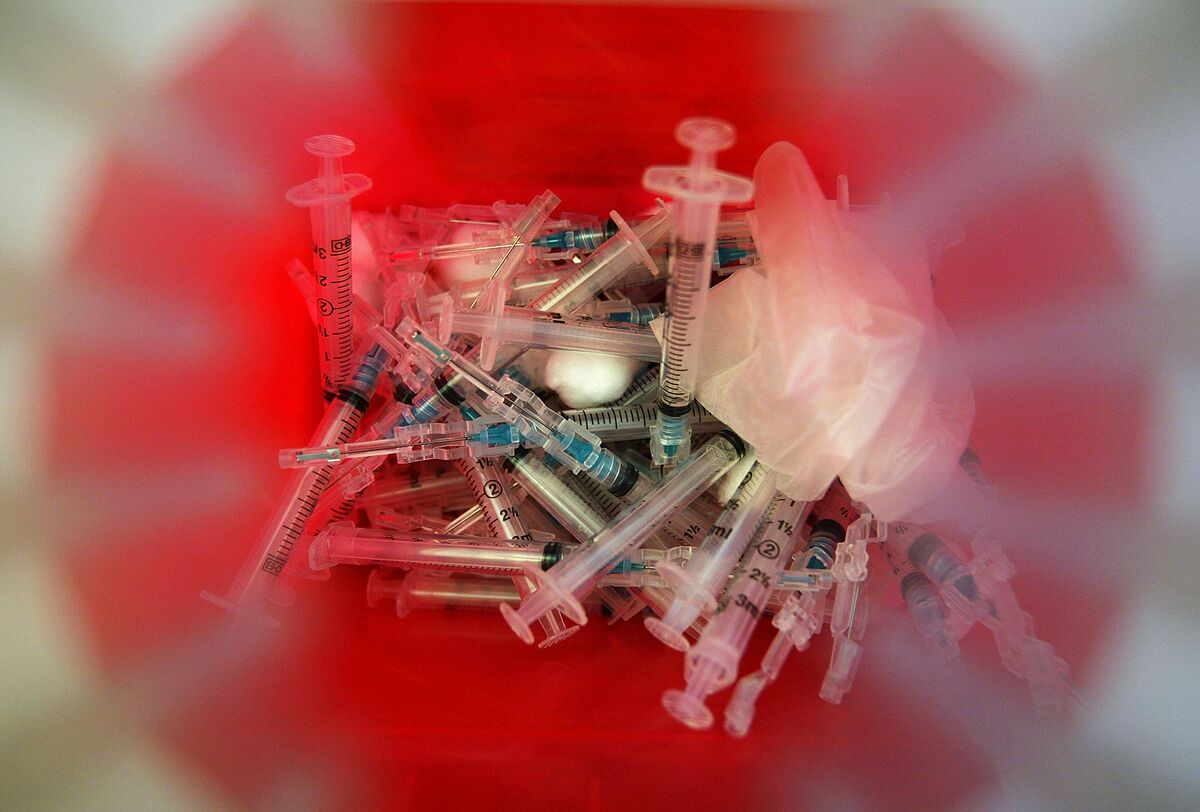You are here
Flu Season Will Be a Test Run for the U.S.’s Biggest-Ever Vaccine Campaign
Primary tabs
 Flu Season Will Be a Test Run for the U.S.’s Biggest-Ever Vaccine Campaign Mobile vans, vaccine strike teams and drive-throughs will take the place of traditional tactics to get shots to the public Bloomberg.com
Flu Season Will Be a Test Run for the U.S.’s Biggest-Ever Vaccine Campaign Mobile vans, vaccine strike teams and drive-throughs will take the place of traditional tactics to get shots to the public Bloomberg.com This fall, the U.S. will need to vaccinate huge numbers of Americans in the middle of a public-health crisis. It will also be a valuable dry run should a coronavirus shot arrive months later.
The annual U.S. flu vaccine campaign has been cast into disarray by Covid-19, with people staying away from pharmacies, schools, offices, hospitals and other places where they typically get their shots. But with fears of a flu surge colliding with the coronavirus pandemic, health authorities are looking at how one vaccine effort can inform the other.
In Denver, public-health officials are trying to increase the number of adults who get the flu vaccine this year to 65% from 45%. To do it, they’re setting up “strike teams” that can go from school to school giving vaccines, vans that can stop at construction sites and inoculate workers, and doing outreach to hard-to-reach communities.
“This whole model that we’re building can then be moved into Covid,” said Judith Shlay a physician and associate director at Denver Public Health.
In Baltimore, the city has several vans it sends out to conduct Covid-19 testing, targeting high-risk residents. It will likely use those vehicles for flu vaccines and then Covid-19, City Health Commissioner Letitia Dzirasa said in an interview.
“Our flu vaccine distribution will inform a Covid vaccine distribution,” Dzirasa said.
The federal government has helped lead development of a vaccine, issuing more than $4 billion in contracts to drugmakers. The money is meant to speed production and cut financial risk for the most promising of the dozens of inoculations in development. President Donald Trump has said a shot could be ready by November, though other experts inside his government predict it will be well into 2021 before most Americans have access to one.
So far, federal health authorities have offered little detail about their plans for administering vaccines. The U.S. has said that it will likely rely on the private sector to distribute the shots, and last week extended a contract to health-care supplier McKesson Corp potentially worth more than $300 million. But the government has said almost nothing about who will get the shots first, where they’ll be given, and how to make sure they get to hard-to-reach and vulnerable communities. ...



Comments
ew Campaign Encourages All to “Keep Up The Rates” and Get Vaccin
Bethesda, MD (August 18, 2020) – Today, a group of more than 85 leading public health organizations announced the launch of a new national campaign called “Keep Up The Rates” to raise awareness about the importance of getting routine vaccinations during the COVID-19 pandemic. The campaign, led by the National Foundation for Infectious Diseases (NFID), encourages all individuals to receive recommended vaccines that may have been delayed in recent months due to the COVID-19 pandemic.
“People of all ages have been sheltering in place, and many have not left their homes for routine medical care in several months,” said NFID Medical Director William Schaffner, MD. “Unfortunately, it’s impossible to get vaccinated from the comfort of your own couch. As a result, we have seen a troubling drop in routine immunization rates across all age groups in the US. We must reverse this trend now; otherwise, we could see outbreaks of dreaded vaccine-preventable diseases across the country, which would be a disaster, particularly during a pandemic.” ...
New Measures Aim to Boost Vaccine Rates for Flu and Children’s S
Pharmacists may now vaccinate young children under a new federal emergency rule aimed at helping families who missed well-child visits during the pandemic.
The Department of Health and Human Services is giving permission to pharmacists nationwide to administer all scheduled shots to children as young as 3, including the flu vaccine, a step that makes immunization more convenient for parents.
The Centers for Disease Control and Prevention said on Thursday that a high-dose flu shot aimed at better protecting people 65 and older will guard against four strains of the virus this year, rather than three. Because the conventional flu vaccine can be less successful in older people, an enhanced shot to boost their immune system has been offered in recent years and this one is stronger than ever. ...